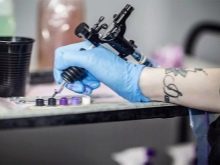Work and tattoos: where are they not taken to work and why?

Tattoos are now very popular among the youth. The abundance of styles and patterns, as well as the popularization of body painting by famous bloggers and celebrities, make tattoo something attractive and even mandatory in certain circles.
But at the same time, many young men and women, filling a tattoo, forget about this: the time will come when it will be necessary to build a career, and it may not be possible to get the desired place just because of the presence of a tattoo. Let's find out where people are not hired to work with tattoos, and why.
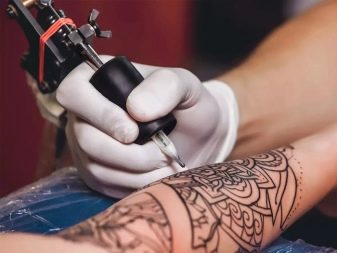
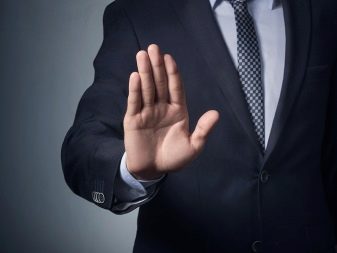
Can you work for the police?
If your desire has always been to enlist in law enforcement agencies (FSB, Ministry of Internal Affairs and other similar places), then you must meet a certain set of requirements:
- suitable age;
- no criminal record;
- good medical performance;
- excellent physical shape.
As you can see, there is no ban on tattoos in this list, but not everything is so simple, because the final verdict on hiring or refusing it is made individually in each case.


And what does the law tell us in this case? The Federal Law of the Russian Federation "On the Police" dated 07.02.2011 No. 3-FZ does not contain any restrictions regarding the service of employees who love body painting. However, you will not find a policeman on the street of a Russian city with a tattoo, for example, on his face or hands. The fact is that tattoos have long been considered the identification marks of representatives of criminal structures.
Of course, now this is not the case, but in certain circles a negative attitude towards them has persisted. That's why when considering a candidate for the position of an investigator, detective, precinct - and, in principle, any civil servant, not only in law enforcement agencies - the presence / absence of visible wearable patterns will be indicated.
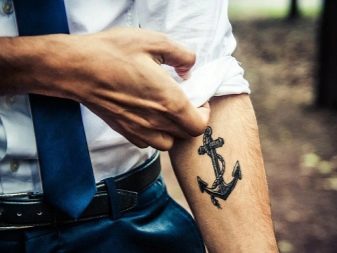

And here there is another nuance: when a job seeker goes to work in the police, he must undergo a medical examination. As you understand, on it, everything, even hidden, tattoos will be seen by doctors. Then the following will be evaluated:
- what exactly is depicted on the tattoo;
- where is it located, how much area of the body it occupies;
- is it possible to cover it with clothes.
If the drawing is small, does not carry a negative hidden meaning, if it can be easily hidden, then, in principle, it will not become an obstacle to obtaining the desired position in the police and similar power structures.
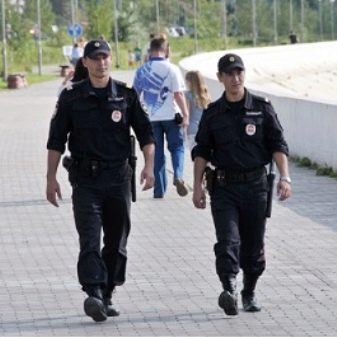
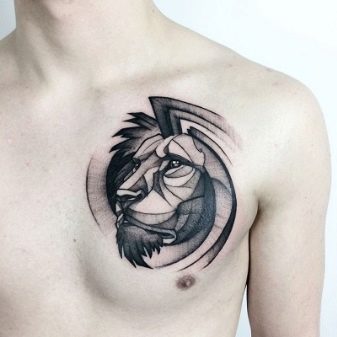
What kind of tattoos are prohibited when applying for a job in such institutions? First of all, these are tattoos with symbols of radical political movements, with calls for disorder, with signs of criminal structures. And also very large, occupying most of the body, hands, face, neck. Of course, as such, there is no law justifying the legitimate refusal to enroll in the service of a candidate with such tattoos, however, the following specialists may declare it unsuitable when undergoing a medical examination:
- psychiatrist;
- psychologist;
- dermatovenerologist.


Perhaps some will be outraged - they say, what kind of discrimination is this? My body, what I want, I depict on it. However, it should be understood that any law enforcement officer is primarily law and order. He must correspond to the moral character that society expects from him. For example, in large tourist centers in Russia, police always patrol places of large crowds of people, attractions.
Guests of our country, who often come from abroad, turn to them for help. A foreigner is unlikely to consider a tattooed Rosguard or a policeman to be competent and professional enough, and he will also think whether it is worth approaching him at all. That is why the appearance of law enforcement officers must be appropriate, inspiring confidence.
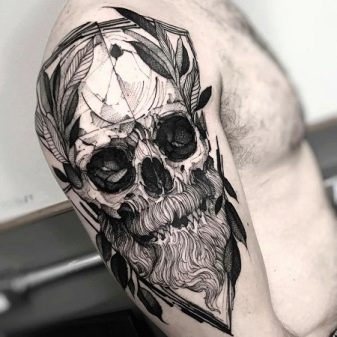
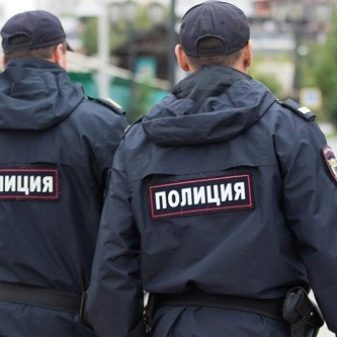
In what other professions are tattoos prohibited and why?
In general, a lot depends on where exactly your tattoo is located. If your position does not involve exposing most of the body, and the drawing is small and located in an area easily hidden under clothes, then there should be no problems when hiring.
But if the tattoo is located on the face, on the neck, on the fingers, on the hands and wrists, certain difficulties may arise in certain areas.
- Government positions. We have already mentioned them when we examined the power structures. A person with visible tattoos will not be hired for civil service.
- Lawyers, office managers, bank employees. Again, there are some caveats here. If the company has strict corporate standards, then the tattooed candidate is likely to be denied a job. However, if you get a job in an office where there are no such strict rules, no one will pay attention to your even visible tattoo.
- Teachers, educators. Just like with the police, there is no official law here that would spell out a ban on tattoos for people working with children in schools and preschools. But a tattoo can become a reason for dissatisfaction of parents or the administration of an educational institution, therefore, most likely, an applicant for this position with a tattoo will be denied a job. We are talking only about visible drawings.
- Consultants in luxury boutiques. Where there are requirements for a strict dress code, there is no place for tattoos.
- Doctors. Tattoos have not interfered with a single professional in their field, and there is not a single law prohibiting doctors from getting a tattoo.But again the psychological aspect intervenes, namely: the distrust of conservative-minded patients. Therefore, doctors cannot have tattoos that cannot be hidden under a robe. Of course, they are strictly prohibited from hitting a tattoo on their hands.
- Model. But here everything is a little more complicated. Runway models often showcase lingerie, swimwear, and other outfits that expose most of the body. Tattoos are much more difficult for them to hide. Many couturiers exclude working with tattooed models, arguing that underwear drawings "cheapen" branded clothing and look out of place on the catwalk. Only very famous models like Gisele Bundchen, Kate Moss or Cara Delevingne can dictate their terms and pattern their bodies.
Although, of course, there are brands that accept models (both men and women) for their shows exclusively with tattoos, but this is their concept.



Where do tattoos not interfere with getting a job?
But, of course, in the huge list of all sorts of professions there are those where tattoos are not at all something forbidden, on the contrary, they often become a "chip" of the wearer. These include the following:
- a bartender in a trendy youth establishment;
- designer;
- actor (just remember the gorgeous tattoos of Dwayne Johnson, Johnny Depp or Angelina Jolie);
- musician;
- hairdresser;
- sports club employee;
- painter;
- IT specialist;
- broker;
- Chef;
- confectioner;
- footballer, and any other professional athlete;
- in fact, the master of the tattoo parlor.

